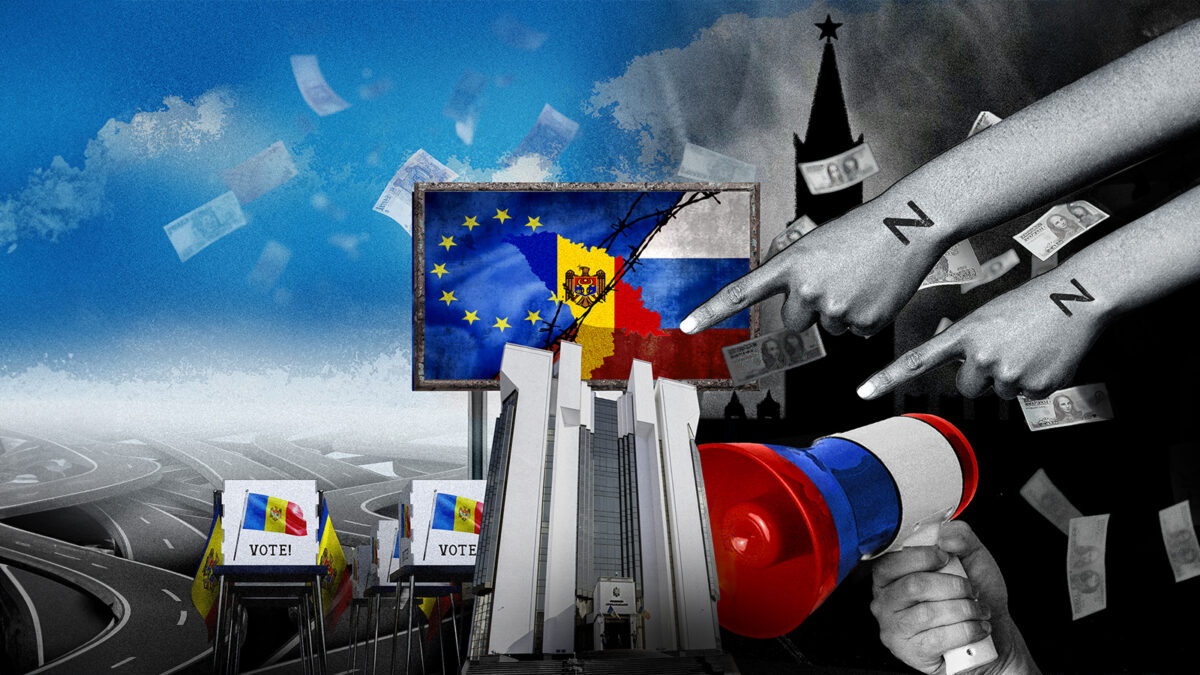Moldova on the Eve of Elections: Democracy Under the Gun of “Hybrid Warfare”

On September 28, 2025, parliamentary elections will be held in Moldova, already being called key to the country’s future. The stakes in these elections go far beyond domestic politics: this is a choice between continuing the European course or returning under Russia’s strong influence.
Two main forces are clashing on the political field today:
- The ruling Action and Solidarity Party (PAS), led by President Maia Sandu, symbolizes the course toward integration with the European Union and the strengthening of democratic institutions;
- Opposition parties – mostly oriented toward Moscow, promising “traditional values” and “stability,” but in fact advocating the preservation of Moldova’s dependence on Russia in energy, the economy, and security.
Parliament Speaker Igor Grosu rightly emphasized that these elections “will be defining for the history of the country”. Indeed, the outcome could cement Moldova’s final break with the post-Soviet past – or, conversely, return it to the Kremlin’s orbit.
Ahead of the elections, President Maia Sandu openly accused Russia of attempting to destabilize the situation through a classic set of hybrid warfare tools:
- large-scale disinformation campaigns in social networks and regional media;
- direct bribery of voters and party activists;
- attempts to undermine trust in the electoral system.
It should be noted that the Kremlin has actively applied these methods in Georgia and the Baltic states, and now in Moldova, where the political balance remains extremely fragile.
The European Union is closely monitoring developments. Brussels regards the elections not only as Moldova’s internal matter but also as a test of the resilience of the region’s democratic institutions. In recent months, the EU has stepped up its support for Chişinău:
- technical assistance to ensure fair elections;
- cybersecurity programs to protect electoral infrastructure;
- media monitoring to detect disinformation.
For the West, Moldova has become a frontier in the struggle between democracy and authoritarianism, especially after Ukraine and Georgia came under intense Russian pressure.
Victory of pro-European forces will secure the country’s strategic course toward EU integration, accelerate reforms, and provide momentum for overcoming energy dependence on Russia. Victory of pro-Russian parties could lead to a partial revision of the foreign policy vector, strengthen Moscow’s influence, and slow down democratic reforms. Most likely scenario – a fragmented parliament: no party will secure an absolute majority, leading to a coalition government. In that case, Moldova risks once again plunging into prolonged domestic political crises.
The September 28 elections are not only a political contest between parties but also a battle for Moldova’s strategic future. On one side of the scale – European integration, modernization, and independence. On the other – the temptation of “stability”, but with the risk of losing sovereignty under Moscow’s pressure.
That is why today Moldova has become one of the key points of intersection between EU and Russian interests. The outcome of the vote will matter not only for Chişinău but for the entire security architecture of Eastern Europe.
Expert Group CCBS
 Latest news
Latest news Latest news
Latest newsTrump and Putin Prepare to Meet Ahead of Zelensky’s White House Visit: A New Phase of Diplomacy or Pressure on Kyiv?
17.Oct.2025
A Shadow over the Russian-Azerbaijani Thaw: What Lies Behind the Arrest of Former Presidential Chief of Staff Ramiz Mehdiyev?
16.Oct.2025
Russia and Syria: A New Chapter in Relations After the Coup
16.Oct.2025
NATO and EU Join Forces to Build a “Drone Wall”
15.Oct.2025
Trump: New bonds of friendship to join Armenia to Azerbaijan
14.Oct.2025
UK to lift its arms embargo on Armenia, Azerbaijan
14.Oct.2025
Russia Opens New Criminal Case Against Opposition Figure Khodorkovsky
14.Oct.2025
Expert analysis by Tigran Khzmalyan: If Pashinyan wins again, Armenia will fall completely under Russia’s influence
14.Oct.2025
The Kremlin Warns the West of Dangerous Escalation: U.S. Plans to Supply Tomahawk Missiles to Ukraine
12.Oct.2025
Moscow Admits Guilt for Downing Azerbaijani Plane: Putin and Aliyev Show “Mutual Understanding of Authoritarian Allies”
10.Oct.2025

 21 Oct 2025
21 Oct 2025








